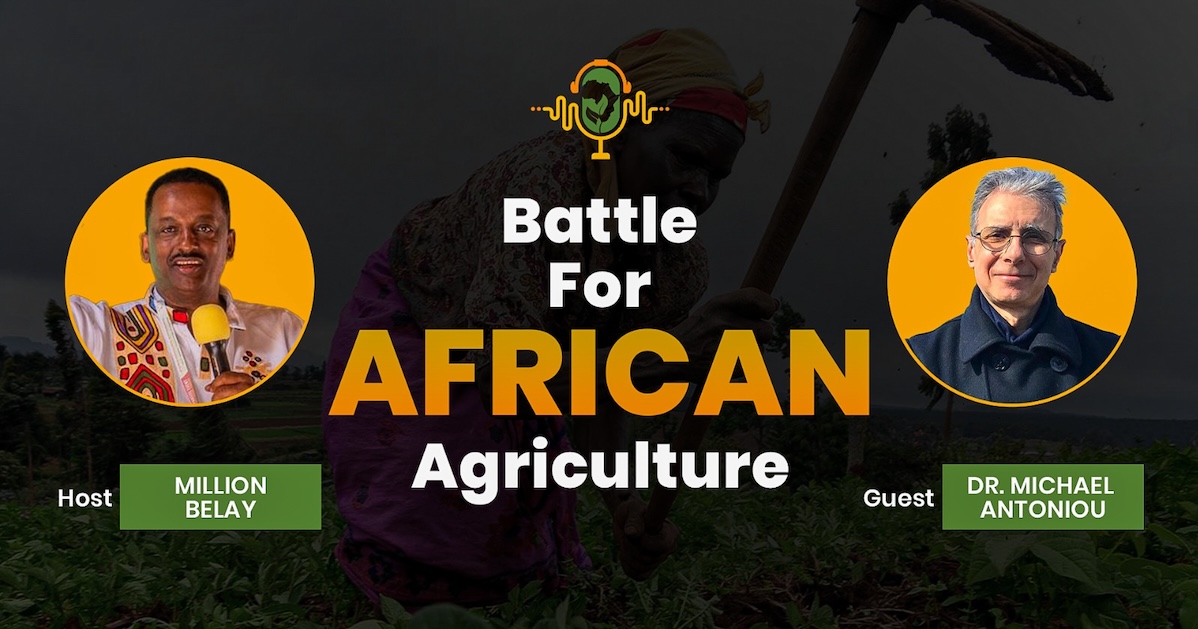 Dr Million Belay interviews molecular geneticist Prof Michael Antoniou
Dr Million Belay interviews molecular geneticist Prof Michael Antoniou
The Battle for African Agriculture is a podcast hosted by Dr Million Belay, General Coordinator of the Alliance for Food Sovereignty in Africa (AFSA).
The series exposes the enduring legacies of colonialism in African food systems, challenges corporate-driven narratives, and uplifts agroecological solutions rooted in justice, biocultural diversity, and food sovereignty.
New episodes drop every Friday on YouTube, Apple Podcasts, Spotify and RSS. You can also find it on all social media platforms of AFSA.
Episode 14 is a conversation between Dr Belay and Prof Michael Antoniou, a leading molecular geneticist from King's College London. Prof Antoniou draws a stark contrast between the controlled use of genetic engineering in medicine and its risky application in agriculture. He explains that while clinical gene therapies operate under strict containment and regulation, genetically modified crops are released into the environment despite being imprecise and unpredictable.
Prof Antoniou outlines three major health risks demonstrated in animal studies: foreign proteins like Bt toxin triggering immune and gut issues; high residues of associated pesticides such as glyphosate; and unintended DNA damage from the engineering process itself, which can create new toxins or allergens. He firmly rejects the notion that GM crops are "substantially equivalent" to their conventional counterparts and dispels the myth that gene editing techniques like CRISPR are clean, highlighting that they still cause hundreds of off-target mutations that go unexamined.
Prof Antoniou also dismantles the core narratives promoting GMOs in Africa, arguing that the claim they are needed to "feed the world" is misleading. He points to FAO and World Bank data showing the world already produces enough food for 14 billion people, asserting that hunger is a problem of poverty and access, not production. He notes that GM crops have not increased inherent yields but have instead driven up herbicide use and locked farmers into corporate-controlled systems of patented seeds and chemicals. Citing his report for the Mexican government, which used evidence of organ and immune damage to justify restrictions on GM corn, he warns that newer stacked trait crops only heighten these risks.
He concludes that the true path to climate resilience and food sovereignty lies not in these "yesterday's news" genetic fixes, but in agroecology and farmer-managed seed systems, a hopeful vision already being realised by small-scale African farmers practising diverse, independent agriculture.
Listen to the full conversation on YouTube, Apple Podcasts, or Spotify.
Source and image: AFSA










